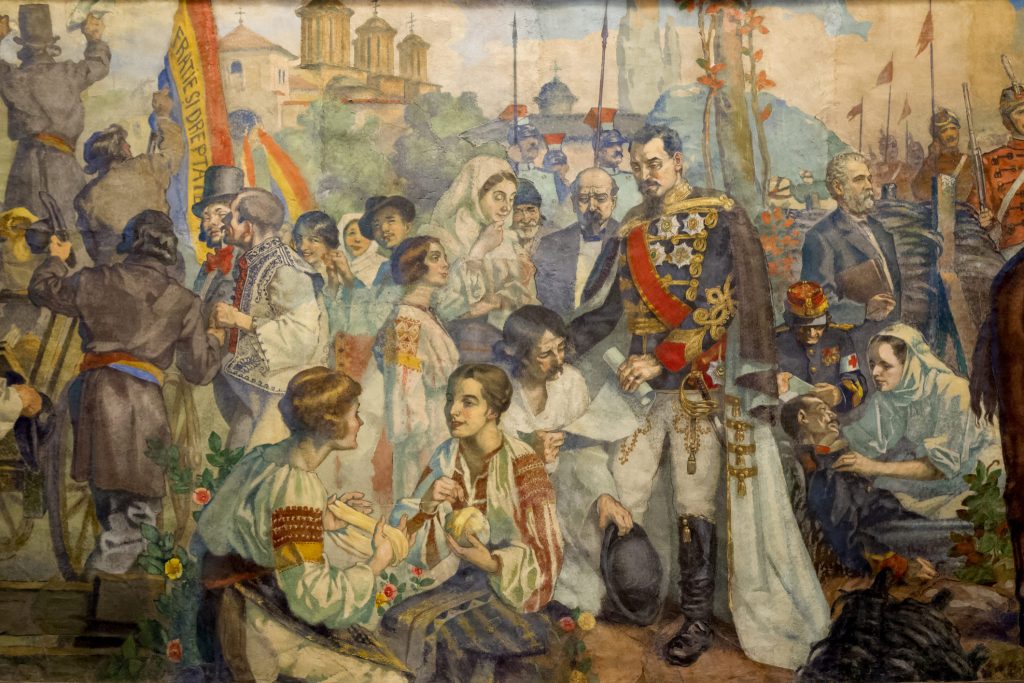
Please follow us on Gab, Minds, Telegram, Rumble, GabTV, Truth Social, Gettr
January 24th, 1859 marked an important step in the creation of Modern Romania. 164 years later, the story is being retold to new generations.
Commonly called “The Small Union,” the unification of Moldavia and Wallachia became possible with the election of Prince Alexandru Ioan Cuza as the ruler of both principalities. The new country became known as The United Principalities of Moldova and Wallachia. It was the result of several laws and policies that had been adopted years before, fulfilling the need for unification of the Romanian people. The Union was also possible due to a major change in national mentality. The rise in the number of intellectuals led the new generation to break down political barriers and create a sense of national consciousness, something that had not been possible before.
During the half of the nineteenth century, Wallachia’s and Moldavia's fates were determined by the Tsarist and Ottoman Empires, both opposed to the idea of a unified nation. The idea started sounding plausible after the Crimean War (1853-1856) when Russia was defeated by the alliance of the Ottoman Empire, France, the United Kingdom, and Piedmont-Sardinia. One month later, the nations involved in the war took part in the signing of the Treaty of Paris, which brought an end to the Crimean War. However, the negotiations also included the principalities of Moldavia and Wallachia.
They demilitarized the Black Sea to improve trade, and the two principalities were recognized as semi-independent states under Ottoman rule. Moldavia was expanded, regaining it lost territories of Cahul, Ismail, and Bolgrad in southern Bessarabia. In 1857, Wallachia and Moldavia were given the right to vote on the unification. Most of Wallachia had a positive response in favor of the unification, but in Moldavia, the result was falsified by Nicolae Vogoride, with the support of the Ottoman Empire. Unfortunately for him, the press intercepted and published a letter to his brother in Constantinople, in which he confessed to everything he did.
Needless to say, the discovery created an uproar in the principalities, as well as in Europe. The European powers broke off relations with the Ottoman Empire, the false election results were annulled, and new elections were organized.
The Paris Convention in 1858 accepted a partial union between Moldavia and Wallachia under the suzerainty of the Sultan but protected by Europe. It wasn’t enough, however, as the two principalities continued to function as semi-independent regions, with only a few common institutions, and two different capitals, in Bucharest and Iași.
The people were not happy with the involvement of the Ottoman Empire, thus, between 5 and 17 January 1859, they were permitted to organize elections in Moldova, which resulted in the election of Alexandru Ioan Cuza as prince. A week later, taking advantage of the fact that no one had specified that Wallachia must have a different ruler, the people of this principality also voted for Alexandru Ioan Cuza. And so, united under the same ruler, Wallachia and Moldavia became a single state.
Alexandru Ioan Cuza had much merit due to his reforms. However, the new country was not called Romania until after his abdication, in 1866, when the new constitution gave it this name. Modern Romania would only become what it is today in 1918, as Transylvania was still under Austrian-Hungarian occupation at the time. This would become known as The Great Union and is celebrated every year on December 1st.
For more on this important period of Romanian history we recommend the following books published by the Center for Romanian Studies, Paul E. Michelson, Romanian Politics, 1859-1871, and Radu R. Florescu, The Struggle Against Russia in the Romanian Principalities.